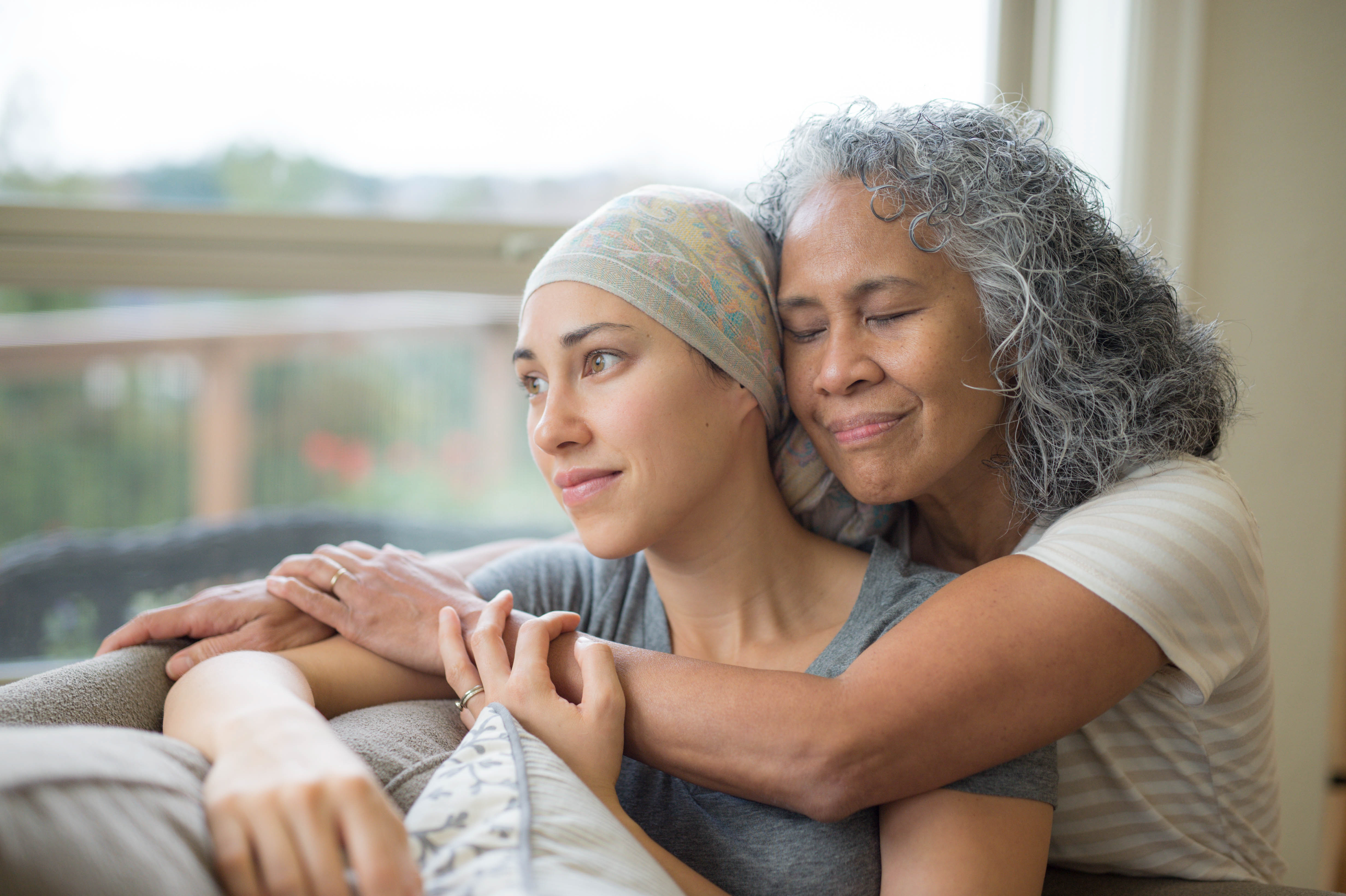Am I A Caregiver?
If you’re providing regular assistance, you are a caregiver. Your loved one may only need support occasionally, or your loved one may need constant care. The kind of support needed will be different for each person and may also change over time. But if you're consistently providing care, you are a caregiver.
Here are just a few examples of caregiver tasks:
- Going grocery shopping and preparing meals
- Assisting with personal hygiene and changing clothes
- Assisting with using the bathroom
- Cleaning
- Doing laundry
- Keeping track of finances
- Driving your loved one to appointments and treatments
- Providing emotional support
- Reminding him or her to take medication and adhere to the treatment plan
- Communicating with members of the healthcare team
- Taking notes during medical appointments
- Communicating with other friends and family.
 Use these worksheets to help you stay organized: Click Here
Use these worksheets to help you stay organized: Click Here
Caregiving Strategies
Use the following suggestions so you don’t feel overwhelmed and can be at your best to help your loved one:
- Acknowledge that an adult loved one has the right to make decisions about his or her life.
Respect that right unless your loved one is no longer capable of making decisions or could put others in danger through his or her behavior. - Whenever possible, offer choices.
The ability to make choices is a basic freedom, so provide choices whenever possible. Choices enable us to express ourselves. As your loved one’s options become more limited due to health changes, financial constraints or social losses, you may have to work harder to provide choices. - Do only those things your loved one can’t do.
If your loved one is still capable of performing certain activities, such as paying bills or cooking meals, encourage him or her to do so. Helping your loved one maintain a feeling of independence will make him or her feel better about being in a care-receiving situation. - Be prepared to do what you promise to do.
Many care recipients find it emotionally difficult to depend on others, and many worry about being a burden. With all these mixed feelings, your loved one needs to be able to rely on you. Do what you promise. Remember that your loved one needs you, even if he or she doesn't say so. - Take care of yourself.
Caregivers often exhaust themselves by trying to handle caregiving responsibilities on top of normal daily routines. Providing care for a loved one while holding down a job, and perhaps taking care of a family, can lead to exhaustion. If you become exhausted, you’re more likely to make bad decisions or to take your frustrations out on your loved one. Take time out to do things you enjoy. Caregivers who take time for themselves can be there for the long haul. Ask your loved one’s doctor to suggest local resources, such as adult day care services that can give you some relief from responsibilities that may feel overwhelming. - Give yourself a break.
At some point in your role as a caregiver, you may start to feel resentment toward your caregiving responsibilities or even your loved one, especially if you are a long-term caregiver. These thoughts may be followed by feelings of guilt. Caregiving is a difficult job so don’t beat yourself up over these normal and common feelings. - Remember that your family is your first resource.
There can be deep emotional currents when a loved one becomes ill. Some family members will want to do everything, while others will do very little unless they’re asked. Yet, spouses, brothers and sisters, children and other relatives can do a lot to ease your caregiving burden. Don’t be afraid to reach out to them for help.
Resources for Caregivers
Information Specialists
![]() Speak one-on-one with an Information Specialist who can assist you through cancer treatment, financial and social challenges and give accurate, up-to-date disease, treatment and support information. Our Information Specialists are highly trained oncology social workers, nurses and health educators.
Speak one-on-one with an Information Specialist who can assist you through cancer treatment, financial and social challenges and give accurate, up-to-date disease, treatment and support information. Our Information Specialists are highly trained oncology social workers, nurses and health educators.
Worksheets and Workbook
![]() Download or order a copy of the Caregiver Workbook, which contains worksheets to help you stay organized, and information and resources to use throughout the caregiving journey.
Download or order a copy of the Caregiver Workbook, which contains worksheets to help you stay organized, and information and resources to use throughout the caregiving journey.
Call an Information Specialist at 800.955.4572 to order a copy.
Webcast
![]() Register for upcoming webcasts and listen to replays of past webcasts.
Register for upcoming webcasts and listen to replays of past webcasts.
Online Chat
![]() Chat with other caregivers Monday evenings from 8-10 pm ET.
Chat with other caregivers Monday evenings from 8-10 pm ET.
Education Videos
![]() Watch videos with information, resources and support for caregivers
Watch videos with information, resources and support for caregivers
Podcast
![]() Listen to the episodes related to caregiving.
Listen to the episodes related to caregiving.
LLS Community
![]() Join a community of other caregivers.
Join a community of other caregivers.
Patti Robinson Kaufmann® First Connection Program
![]() A support program that links you with a trained peer volunteer who has experienced a similar situation.
A support program that links you with a trained peer volunteer who has experienced a similar situation.

